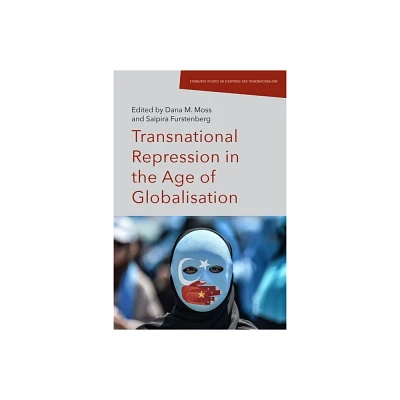Home
Globalisation and Citizenship: The Transnational Challenge
Loading Inventory...
Barnes and Noble
Globalisation and Citizenship: The Transnational Challenge
Current price: $38.99


Barnes and Noble
Globalisation and Citizenship: The Transnational Challenge
Current price: $38.99
Loading Inventory...
Size: OS
*Product Information may vary - to confirm product availability, pricing, and additional information please contact Barnes and Noble
This wide-ranging volume explores the impact of globalization upon citizenship, with a special focus on the transnational challenges that globalization poses.
While there is much debate over the concept, globalization implies at least two distinct phenomena. First, it suggests that political, economic and social activities are becoming increasingly inter-regional or intercontinental in scope. Secondly, it suggests that there has been an intensification of levels of interaction and interconnectedness between states and societies. Citizenship, as one of the foundational concepts of the modern liberal democratic states, provides the normative framework within which globalization debates may be understood and evaluated. It also examines how different concepts, theories and practices of citizenship are evolving in response to globalization. Central questions explored in this text are:
• How does globalization challenge traditional conceptions of citizenship in specific respects?
• How is globalization creating new citizenships or new civil society spaces?
• How is transnational citizenship developing and what problems are associated with it in specific areas?
Discussing the theoretical and practical prospects for new forms of liberal, republican and cosmopolitan citizenship,
Globalisation and Citizenship
will appeal to students and scholars in the fields of international relations, globalization, sociology and political science.
While there is much debate over the concept, globalization implies at least two distinct phenomena. First, it suggests that political, economic and social activities are becoming increasingly inter-regional or intercontinental in scope. Secondly, it suggests that there has been an intensification of levels of interaction and interconnectedness between states and societies. Citizenship, as one of the foundational concepts of the modern liberal democratic states, provides the normative framework within which globalization debates may be understood and evaluated. It also examines how different concepts, theories and practices of citizenship are evolving in response to globalization. Central questions explored in this text are:
• How does globalization challenge traditional conceptions of citizenship in specific respects?
• How is globalization creating new citizenships or new civil society spaces?
• How is transnational citizenship developing and what problems are associated with it in specific areas?
Discussing the theoretical and practical prospects for new forms of liberal, republican and cosmopolitan citizenship,
Globalisation and Citizenship
will appeal to students and scholars in the fields of international relations, globalization, sociology and political science.


















